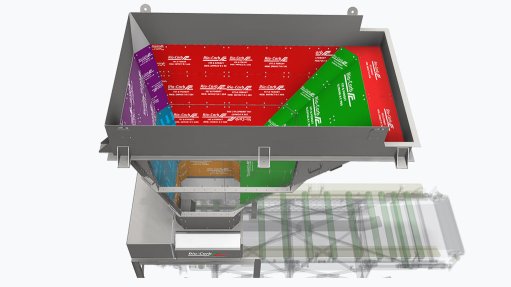How to safeguard your business operations against cybercrime
This article has been supplied and will be available for a limited time only on this website.
South Africa is a growing cybercrime hotspot on the African continent, with attacks on businesses becoming more common as well as increasingly sophisticated. Karen Rimmer, Head of Distribution at PSG Insure, highlights that the consequences of cybercrime can be devastating, leading to severe financial loss, reputational damage, operational disruption, and potential legal liabilities – for businesses of any size. “As digital reliance grows, so does the urgency for businesses to protect their systems and data against these evolving threats,” explains Rimmer.
In a recent survey by the Council for Scientific and Industrial Research, 88% of South African organisations admitted to suffering at least one security breach in the past year, with 47% reportedly experiencing up to five cybersecurity incidents. “Business email compromise is becoming one of the biggest threats, with cybercriminals intercepting emails to redirect payments to fraudulent accounts. This growing trend highlights the need for improved cyber vigilance, but also - the right type and level of insurance to safeguard businesses from financial losses.” says Rimmer. “Having the correct cyber cover in place can help mitigate the damage, ensuring businesses can recover swiftly and minimise long-term impact.”
Why is cyber insurance so specialised?
Furthermore, Rimmer emphasises that despite becoming increasingly common, cyber insurance remains highly specialised, with policies tailored to the digital risks of each business. This means an insurer will require an in-depth understanding of the business’ digital setup to address unique vulnerabilities and safeguard against any potential risks.
However, Rimmer adds that claims can still be repudiated if policies aren’t carefully reviewed and maintained. Common reasons for rejected claims include:
- Inadequate security protocols;
- Failure to update the policy with evolving business operations, or
- Non-compliance with policy requirements.
“Working alongside an insurance adviser will ensure that businesses not only secure the right cover but also fully understand the requirements and limitations of their policies.” Rimmer emphasises.
Key types of cyber cover available
Rimmer goes on to outline the comprehensive cyber insurance can cover various types of incidents, such as:
- Data breaches: Protecting sensitive information from exposure or theft and covering costs related to notifying affected parties and managing reputational impact.
- Ransomware attacks: Covering the costs associated with restoring data and systems, and in some cases, assisting with ransom payments.
- Business interruption: Compensating for lost income and increased cost of working.
“Given the complexities, insurance advisers play an important role in helping businesses choose the right policy features. They can also assist in determining the level of cover required, which will ensure businesses don’t end up overpaying in premiums without compromising on cover.” she adds.
Five strategies to mitigate cyber risk
Rimmer stresses that, “while insurance is essential, proactive cyber risk management is equally critical”. She adds that the following five strategies can help to help prevent incidents of cybercrime:
1. Implement robust authentication systems:Multi-factor authentication (MFA) combined with complex passwords creates an initial line of defence against unauthorised access, making it significantly harder for cybercriminals to breach company systems.
2. Stay vigilant with updates and patches: Businesses should consistently apply software patches and updates to address security vulnerabilities in programmes and products. Regular patching reduces potential access points for cybercriminals to exploit.
3. Utilise advanced anti-virus solutions: Anti-virus software has become more accessible, and many offerings now include artificial intelligence and behavioural detection capabilities. These tools can help to detect and neutralise threats quickly.
4. Employee training: Human error remains one of the top causes of cyber incidents. Regular training on phishing recognition, secure data handling, and email security can greatly reduce risk.
5. Secure data backups: Regular, encrypted backups of company data minimise disruption and data loss in case of ransomware or other cyber incidents.
“As cyber threats continue to evolve with the advent of new technologies, a multi-layered defence is required. Combining comprehensive cyber insurance with proactive cybersecurity can help businesses to reduce the risk of significant financial and reputational damage.” Rimmer concludes.
Comments
Press Office
Announcements
What's On
Subscribe to improve your user experience...
Option 1 (equivalent of R125 a month):
Receive a weekly copy of Creamer Media's Engineering News & Mining Weekly magazine
(print copy for those in South Africa and e-magazine for those outside of South Africa)
Receive daily email newsletters
Access to full search results
Access archive of magazine back copies
Access to Projects in Progress
Access to ONE Research Report of your choice in PDF format
Option 2 (equivalent of R375 a month):
All benefits from Option 1
PLUS
Access to Creamer Media's Research Channel Africa for ALL Research Reports, in PDF format, on various industrial and mining sectors
including Electricity; Water; Energy Transition; Hydrogen; Roads, Rail and Ports; Coal; Gold; Platinum; Battery Metals; etc.
Already a subscriber?
Forgotten your password?
Receive weekly copy of Creamer Media's Engineering News & Mining Weekly magazine (print copy for those in South Africa and e-magazine for those outside of South Africa)
➕
Recieve daily email newsletters
➕
Access to full search results
➕
Access archive of magazine back copies
➕
Access to Projects in Progress
➕
Access to ONE Research Report of your choice in PDF format
RESEARCH CHANNEL AFRICA
R4500 (equivalent of R375 a month)
SUBSCRIBEAll benefits from Option 1
➕
Access to Creamer Media's Research Channel Africa for ALL Research Reports on various industrial and mining sectors, in PDF format, including on:
Electricity
➕
Water
➕
Energy Transition
➕
Hydrogen
➕
Roads, Rail and Ports
➕
Coal
➕
Gold
➕
Platinum
➕
Battery Metals
➕
etc.
Receive all benefits from Option 1 or Option 2 delivered to numerous people at your company
➕
Multiple User names and Passwords for simultaneous log-ins
➕
Intranet integration access to all in your organisation
















